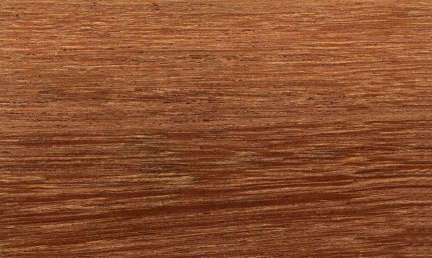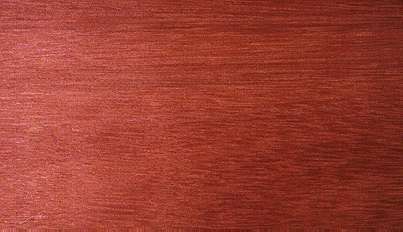 
Andaman gurjun (Dipterocarpus grandiflorus)
Family: Dipterocarpaceae
Common names: Andaman gurjun, Apitong, Bagac, Bebe, Dau, Eng, Heng, Huevos de gato, Indian gurjun, Keruing, Lagan, Lagunero, Mututi, Nogal falso, Palo de pollo, Pau sangua, Philippine gurjun, Sangre, Sangre de drago, Sangrillo, Yang
Distributed in: India, Indonesia, Malaysia, Myanmar, Philippines, Vietnam (Oceania and S.E. Asia)
Distribution overview: Dominanat in primary forests; occupies the drier ridges in the lower hill dipterocarp forest. Endemic to the Philippines in Mindoro, Luzon, Palawan, Sibuyan, Biliran, Samar, Panay, Negros and Mindanao. It is one of the most widely distributed and abundant woods in the islands. Also in Indonesia, Sumatra and Java.
Common uses: Beams, Bridge beams, Bridge construction, Bridge joists, Building construction, Cabin construction, Chairs, Chests, Concealed parts (Furniture), Concrete formwork, Construction, Decks, Desks, Dining-room furniture, Docks, Dockwork, Domestic flooring, Dowell pins, Dowells, Drawer sides, Factory construction, Factory flooring, Fine furniture, Floor lamps, Flooring, Form work, Foundation posts, Framing, Furniture , Furniture components, Furniture squares or stock, Hatracks, Heavy construction, Joists, Kitchen cabinets, Light construction, Living-room suites, Marine construction, Piling, Poles, Vehicle parts
Product sources: Various species in the genus are usually mixed and marketed together. Timbers from Malaysia are highly variable in properties.
Environment profile: Vulnerable in parts of its natural habitat
Tree size: Trunk diameter is 150-200 cm
Colors: the heart isReddish brown, Yellowand the sapwoodWide, Yellow.The grain isStraight to shallowly interlocked, the textureModerately coarseand the lusterNon-lustrous
Natural durability: Susceptible to attack by marine borers, Susceptible to termite attack
Odor: Strong resinous smell associated with freshly cut wood
Silica Content: Likely to have significant impact on machining
Kiln Schedules: T3 - D2 (4/4); T3 - D1 (8/4) US
Drying Defects: Drying at high temperatures may cause resin exudation, Warping can be expected
Ease of Drying: Thick Stock Requires Care
Blunting Effect: Little
Boring: Very good to excellent results
Carving: Fairly Easy to Very Easy
Cutting Resistance: Saw teeth blunted rapidly and severely by some stock
Gluing: Fairly difficult to glue
Mortising: Fairly Easy to Very Easy
Moulding: Fairly Easy to Very Easy
Movement in Service: Fairly Easy to Very Easy
Nailing: Satisfactory nailing properties
Planing: Straight grained and easy to work in most machining operations
Resistance to Impregnation: Sapwood is moderately resistant
Routing recessing: Fairly Easy to Very Easy
Sanding: Good sanding properties
Steam bending: Steaming accompanied by severe resin exudation
Turning: Wood may chip and break off on fine edges
Painting: High resin exudation makes painting/finishing difficult
; Polishing: Very Good to Excellent; Staining: Resin exudation interferes with most surface finishing treatments
; Varnishing: Resin exudation affects varnishing qualities
;
- Numerical data Metric
- Numerical data English
- Strength properties
- References
 |
 |
 |
 |
| Item |
Green |
Dry |
Metric |
| Specific Gravity |
0,6 |
0,68 |
|
| Density |
|
705 |
kg/m3 |
| Bending Strength |
658 |
1283 |
kg/cm2 |
| Crushing Strength |
49 |
85 |
kg/cm2 |
| Hardness |
|
739 |
kg |
| Impact Strength |
|
|
cm |
| Shearing Strength |
|
129 |
kg/cm2 |
| Stiffness |
134 |
184 |
1000 kg/cm2 |
| Tangential Shrinkage |
|
|
% |
| Radial Shrinkage |
|
|
% |
| Weight |
|
|
kg/m3 |
| Maximum Load |
|
|
cm-kg/cm3 |
| Toughness |
|
425 |
cm-kg |
| Static Bending |
374 |
788 |
kg/cm2 |
|
 |  |  |  | | Item | Green | Dry | English | | Bending Strength | 9372 | 18259 | psi | | Crushing Strength | 699 | 1223 | psi | | Density | | 44 | lbs/ft3 | | Hardness | | 1631 | lbs | | Maximum Crushing Strength | 4505 | 9528 | psi | | Shearing Strength | | 1837 | psi | | Static Bending | 5324 | 11213 | psi | | Stiffness | 1912 | 2631 | 1000 psi | | Toughness | | 369 | inch-lbs | | Specific Gravity | 0.6 | 0.68 | | | Weight | 44 | 36. | lbs/ft3 | |
Chowdhury, K.A. and S.S. Ghosh. 1958. Indian Woods - Their Identification, Properties and Uses, Volume I - Dilleniaceae to Elaeocarpaceae. Published by the Manager of Publications, Delhi, India.Chudnoff, M.,1984,Tropical Timbers of the World,U.S.A. Department of Agriculture, Forest Service, Forest Products,Laboratory, Madison.HMSO.1972.Handbook of Hardwoods, 2nd Edition.Revised by R.H. Farmer.Department of the Environment, Building Research Establishment, Princes Risborough Laboratory, Her Majesty's Stationery Office, London.Keating, W.G., Bolza, E.,1982,Characteristics properties and uses of timbers. South East Asia, Northern,Australia and the Pacific,C.S.I.R.O. Div. Chemical Technology,Inkata Press,1Kloot, N. H. and E. Bolza.1961.Properties of Timbers Imported into Australia.Technological Paper No. 12.Division of Forest Products, Commonwealth Scientific & Industrial Research Organization, Melbourne, Australia.Lincoln, W.A. 1986. World Woods in Color. Linden Publishing Co. Inc., Fresno, California.WCMC.1992.Conservation Status Listing - Trees and Timbers of the World.World Conservation Monitoring Center - Plants Programme, Cambridge, CB3 ODL, United Kingdom.
|









